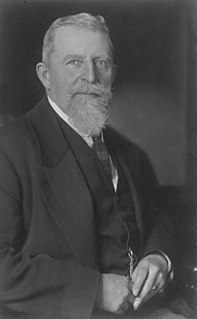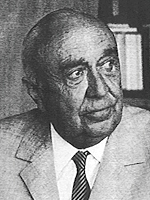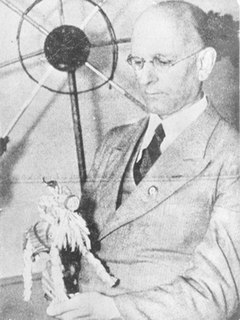Related Research Articles

Ethnic groups in Chinese history refer to various or presumed ethnicities of significance to the history of China, gathered through the study of Classical Chinese literature, Chinese and non-Chinese literary sources and inscriptions, historical linguistics, and archaeological research.

Friedrich Kluge was a German philologist and educator. He is known for the Kluge etymological dictionary of the German language, which was first published in 1883.
German studies is the field of humanities that researches, documents, and disseminates German language and literature in both its historic and present forms. Academic departments of German studies often include classes on German culture, German history, and German politics in addition to the language and literature component. Common German names for the field are Germanistik, Deutsche Philologie, and Deutsche Sprachwissenschaft und Literaturwissenschaft. In English, the terms Germanistics or Germanics are sometimes used, but the subject is more often referred to as German studies, German language and literature, or German philology.

Jan Pieter Marie Laurens de Vries was a Dutch philologist, linguist, religious studies scholar, folklorist, educator, writer, editor and public official who specialized in Germanic studies.

Otto Eduard Gotfried Ernst Höfler was an Austrian philologist who specialized in Germanic studies. A student of Rudolf Much, Höfler was Professor and Chair of German Language and Old German Literature at the University of Vienna. Höfler was also a Nazi from 1922 and a member of the SS Ahnenerbe before the Second World War. Höfler was a close friend of Georges Dumézil and Stig Wikander, with whom he worked closely on developing studies on Indo-European society. He tutored a significant number of future prominent scholars at Vienna, and was the author of works on early Germanic culture. Julia Zernack refers to him as "perhaps most famous and probably most controversial representative" of the "Vienna School" of Germanic studies founded by Much.
Nazi archaeology was the movement led by various Nazi leaders, such as Adolf Hitler and Heinrich Himmler, archaeologists and other scholars to research the German past in order to strengthen nationalism.

Elbe Germanic, also called Irminonic or Erminonic, is a term introduced by the German linguist Friedrich Maurer (1898–1984) in his book, Nordgermanen und Alemanen, to describe the unattested proto-language, or dialectal grouping, ancestral to the later Lombardic, Alemannic, Bavarian and Thuringian dialects. During Late antiquity and the Middle Ages, its supposed descendants had a profound influence on the neighboring West Central German dialects and, later, in the form of Standard German, on the German language as a whole.

Rudolf Much was an Austrian philologist and historian who specialized in Germanic studies. Much was Professor and Chair of Germanic Linguistic History and Germanic Antiquity at the University of Vienna, during which he tutored generations of students and published a number of influential works, some of which have remained standard works up to the present day.

Wolfgang Krause was a German philologist and linguist. A professor at the University of Göttingen for many years, Krause specialized in comparative linguistics, and was an authority on Celtic studies, Tocharian languages, Germanic studies, Old Norse and particularly runology.

Friedrich Maurer was a German philologist who specialized in Germanic studies.

Edward Schröder was a Germanist and mediaevalist who was a professor at the University of Göttingen and published editions of numerous texts.
Ernst Schwarz was an Austro-Hungarian-born German philologist who was Professor of Ancient German language and Literature at Charles University, and later Professor of Germanic and German Philology at the University of Erlangen–Nuremberg. Schwarz specialized in Germanic studies, especially dialectology and onomastics, with a particular focus on the Sudeten Germans.

Heinrich Beck was a German philologist who specialized in Germanic studies. A Professor of Ancient German and Nordic Studies at Saarland University and later the University of Bonn, Beck was a co-editor of the second edition of Reallexikon der Germanischen Altertumskunde and one of the world's leading experts on early Germanic culture.

Hermann Güntert was a German linguist who specialized in Germanic and Indo-European linguistics.

Dietrich Ritter Kralik von Meyrswalden was an Austrian philologist who specialized in Germanic studies.

Friedrich von der Leyen was a German philologist who specialized in Germanic studies.

Klaus von See was a German philologist who specialized in Germanic studies.
Elard Hugo Meyer was a German philologist who specialized in Germanic and Indo-European studies.

Eugen Fehrle was a German philologist who specialized in classical and Germanic philology.

Lily Weiser-Aall, born Elisabeth Augusta Jeanette Weiser, was an Austrian philologist and ethnologist who specialized in Germanic studies.
References
- Epstein, Fritz T., War-Time Activities of the SS-Ahnenerbe (in On the Track of Tyranny: Essays Presented by the Wiener Library to Leonard G. Montefiore, on the Occasion of His Seventieth Birthday. Ayer Publishing. 1971. pp. 79–81.)